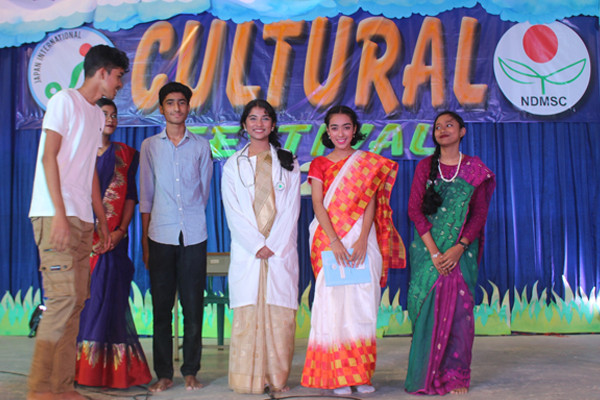Japan International Dream School is a supportive community that champions respect.
Japan International Dream School is the first English version school in Bangladesh established by a Japanese entrepreneur. Everything is planned and managed according to Japanese rules and regulations. This school aims to promote quality education for students to help them succeed in a globalized world. The school occupies 10 acres of land with a four-storied building and a large playground. It is equipped with all kinds of modern facilities to provide an ideal environment for the development of every student. The school operates under the rules and regulations of Ikubunkan High School in Tokyo, Japan, to implement a dream education model. It follows the National Curriculum (English Version) along with globally recognized subjects such as foreign languages, computer programming, music, dance, art, and sports. The academic program officially starts in January 2017.


Date: 2023-02-10
At the beginning of the year, more specifically in February sports festival is arranged to give chances to the students to perform their skills in sports. JIDSC sports festival has broken the convention. Students do not personally compete against other students rather they compete as being part of different teams. All the students are grouped into six teams named differently. Many local and Japanese games are played among the teams and gains scores. The highest scorer wins the Trophy. Through this festival, students learn the importance of teamwork.
Read More
Date: 2023-01-25
Greetings to all. Dream School and College was established on January 5, 2013. This year our dream organization has completed 10 years. Ten years have passed just in a blink of an eye. During this time, we have got a lot of support from students, parents and local people. We have come so far today because of everyone's cooperation and involvement with this school.
Read More
Date: 2021-12-16
A cultural festival is organized in JIDSC campus on a fixed day. In the cultural festival, students show their activities to the public, guardians, friends, and students of other schools. Students themselves arrange the festival and manage the festival too. Students arrange food shops, handicrafts, and games and perform drama, jokes, dances, music, and many other activities.
Read MorePOST FROM